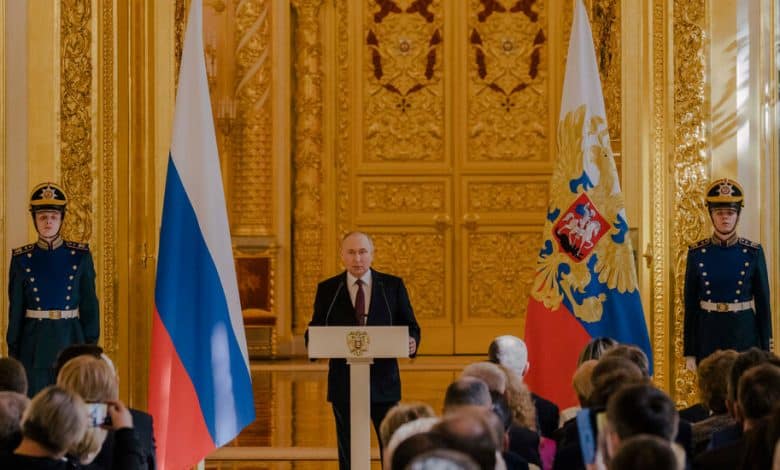The Islamic State Claimed the Moscow Attack. The Kremlin Is Still Blaming Others.

Even before the deadly toll of the attack on a Moscow concert hall on Friday became clear, officials in Russia linked it to the war against Ukraine and a broader conflict with the West. Ninety minutes after first reports of the attack, Dmitri A. Medvedev, the former president and the deputy chairman of the Kremlin’s security council, darkly hinted at “terrorists of the Kyiv regime.”
The claim of responsibility by the Islamic State did little to temper the Kremlin’s narrative, which has unspooled in a torrent of unsupported accusations and baseless, even fanciful conspiracy theories spread across social media.
When President Vladimir V. Putin said “radical Islamists” had carried out the attack, he called it “just an element in a series of attempts of those who have been at war with our country since 2014,” an explicit reference to Ukraine and the upheaval that year that led to the illegal annexation of Crimea.
“They need a ‘Big Lie,’” said Nina Khrushcheva, a professor of international affairs at the New School in New York, who has written extensively on Russian politics and propaganda.
The narratives served to deflect attention from the failure to prevent the deadly attack at Crocus City Hall, while rallying the country behind a war that has claimed hundreds of thousands of lives. Posts linked to the Kremlin or its supporters spread in German, Spanish, Portuguese and Italian and suggested, without evidence, that the Central Intelligence Agency, the British intelligence service MI6 or others were the actual masterminds.
“So they are steering it to where it needs to go,” Ms. Khrushcheva said, referring to the Kremlin’s propaganda effort, “all enemies foreign and domestic centered around one umbrella — Ukraine and the directing hand of the West to destabilize.”
